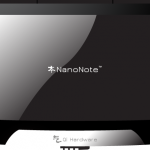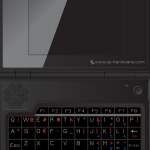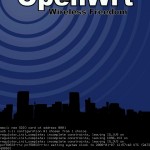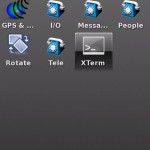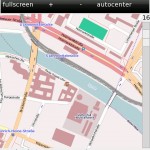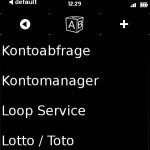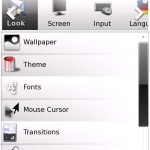Long time no news regarding OpenWrt <-> the Openmoko Neo devices; but it
happened much!
It now reached a state where I think it’s justified to announce a ready-to-work(/debug?) OpenWrt-Image for the Openmoko Freerunner.
This should be a short overview of what happened
– kernel 2.6.30.1 is running
all neo-specific patches were extracted from the OM-kernel-tree and
created an atomic and maintainable patchset for the Neo (thanks to Lars !!)
– clean, stable and accelerated graphics system
thanks to the gorgeous work of the xf86-video-glamo developers (especially Lars (again)), finally
there’s no need for <Xglamo> anymore – acceleration is done from within
an usual <Xorg> with the glamo-driver used. The infamous WSOD (white screen of death) should be
ultimately purged out.
– GPS works
the amazing application <tangoGPS> is also available as an
OpenWrt-package now
– performance tuned
due to it’s architecture itself, fixed bugs and found ways for
optimizations through all layers, OpenWrt now boots in less than 1
minute into illume (very first boot excluded)
– software added/upgraded
besides lot’s of just OpenWrt-related improvements, also typical
OM-community-used packages were added and upgraded to recent versions
(e.g. tangogps, enlightenment/the whole efl-suite, paroli, fso, connman,
etc.)
– a beautiful bootsplash
real beauty can’t be described by words 😛
– phone calls are still possible
thanks to paroli, the basic phone stuff is (still) working (phone calls,
messages, contacts, etc.)
== Images / environment
Images can be found here: http://nanl.de/files/openwrt/openmoko/
Mind – that, as usual for OpenWrt – the default IP of your device will
be “192.168.1.1” and the only running service will be <telnet> on port
23.
After logging in and setting a password, <telnetd> is getting replaced
through <sshd> (port 22).
The mentioned files/images have the prefix “20090706_r16709_1”, based on
svn-revision 16709.
Suggestions / critism is welcome… 🙂
The original announcement on the mailinglists can be found here (http://kerneltrap.org/mailarchive/openmoko-devel/2009/7/6/6147903)


